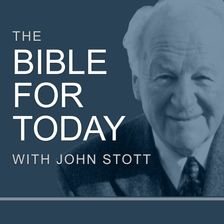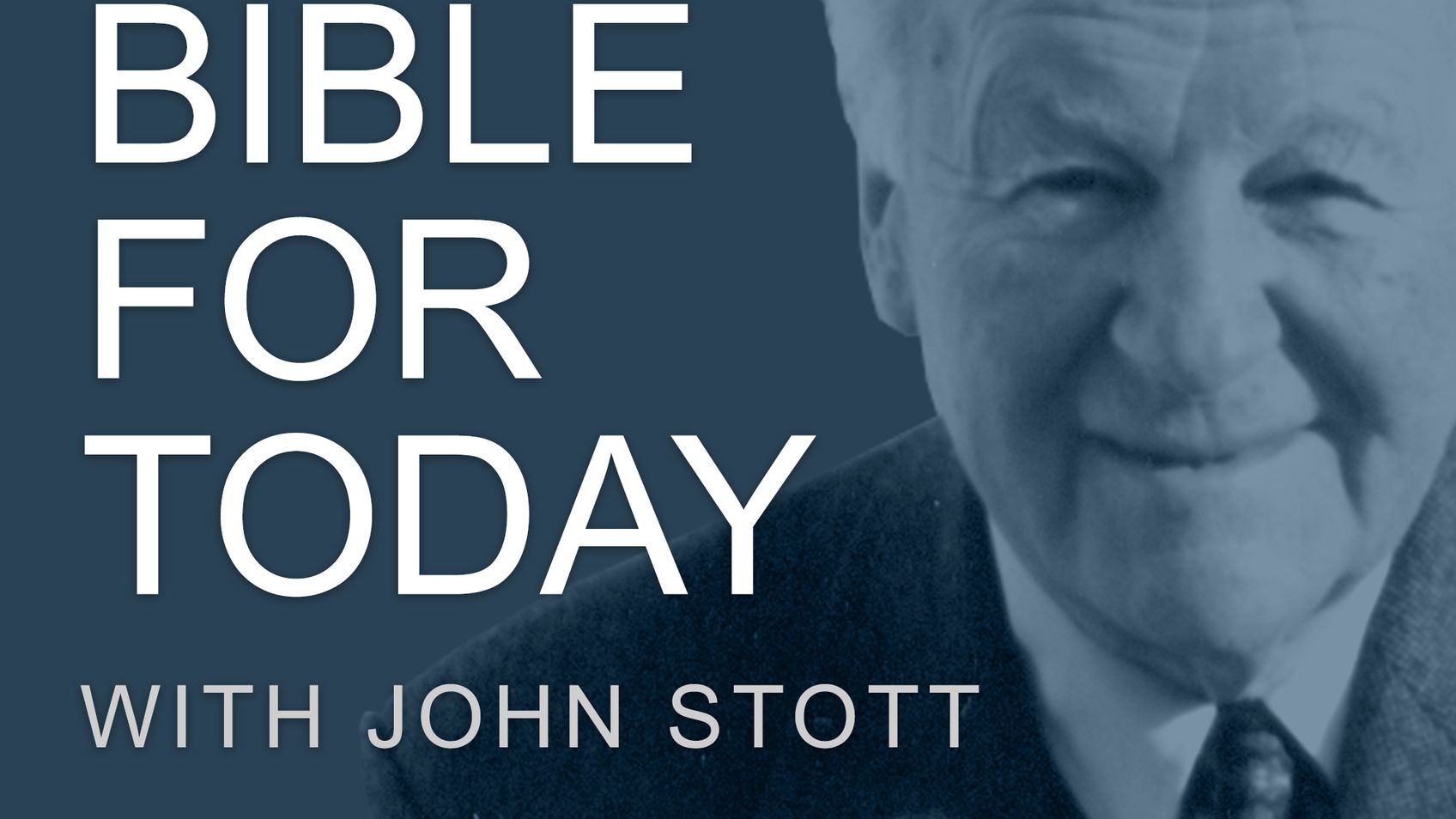More Than He Bargained For - Part 2
November 28, 2021

The Bible for Today with John StottPremier
John Stott explains why the healing of the lame man in Acts 3 was recorded, what Luke wanted his readers to learn from it and what lessons it has for us today.
More From The Bible for Today with John Stott

Qualifications of Christian Leaders - Part 1
The Bible for Today with John Stott
December 5, 2021
John Stott explains that the health of the local church depends on the quality of its leaders. He shows that pastoral leadership was always God's purp

Qualifications of Christian Leaders - Part 2
The Bible for Today with John Stott
December 12, 2021
John Stott unpacks the scriptural qualifications for a church leaders. He shows the things that should not be present in a leader as well as the requi

Jesus‘s Vision for His Church
The Bible for Today with John Stott
December 19, 2021
John Stott sits in the upper room with Christ and hears Him pray for the truth of the church, the holiness of the church, the mission of the church an

More Than He Bargained For - Part 1
The Bible for Today with John Stott
November 21, 2021
John Stott carefully analyses the miraculous healing of the lame man recorded in Acts 3. John asks why that particular event was recorded and whether

Repudiating Greed - Part 2
The Bible for Today with John Stott
November 14, 2021
John Stott explains what the apostle Paul meant about slaves and masters in the context of his day. John also shows us how to identify false teachers

Repudiating Greed - Part 1
The Bible for Today with John Stott
November 7, 2021
John Stott explains what the apostle Paul meant about slaves and masters in the context of his day. John also shows us how to identify false teachers
More on OpenTheo

How Can I Explain Modesty to My Daughter?
#STRask
November 27, 2025
Questions about how to explain modesty to a nine-year-old in a way that won’t cause shame about her body, and when and how to tell a child about a pre

Why Are So Many Christians Condemning LGB People Just Because of How They Love?
#STRask
January 15, 2026
Questions about Christians condemning LGB people just because of how they love, how God can expect someone to be celibate when others are free to marr

How Do I Determine Which Topics at Work Are Worth Commenting On?
#STRask
January 5, 2026
Questions about how to determine which topics at work are worth commenting on, and a good way to respond when you’re in a group Bible study and hear e

Protestants and Catholics: What’s the Difference? With Chad Van Dixhoorn, Blair Smith, and Mark McDowell
Life and Books and Everything
November 26, 2025
How should Protestants think about the Catholic Mass? About the Eucharist? About the history and development of the papacy? In this panel discussion,

The Heidelberg Catechism with R. Scott Clark
Life and Books and Everything
November 3, 2025
You may not think you need 1,000 pages on the Heidelberg Catechism, but you do! R. Scott Clark, professor at Westminster Seminary California, has writ

How Should I Respond to an LGBTQ Person Who Says He Feels Good About Who He Is?
#STRask
March 2, 2026
Questions about responding to an LGBTQ person who says he feels good about who he is, and whether—since we all have sin in our life we don’t consider

Why Does the Bible Teach You How to Be a Proper Slave Owner?
#STRask
November 13, 2025
Question about why it seems like the Bible teaches you how to be a proper slave owner rather than than saying, “Stop it. Give them freedom.”
* It s

Is 1 Corinthians 12:3 a Black-and-White Tool for Discernment?
#STRask
October 27, 2025
Questions about whether the claim in 1 Corinthians that “no one can say ‘Jesus is Lord’ except in the Holy Spirit” is a black-and-white tool for disce

Is It Possible There’s a Being That’s Greater Than God?
#STRask
February 5, 2026
Questions about whether it’s possible there’s a being that’s greater than God and that’s outside of God’s comprehension and omniscience, and how to ex

The Man on the Middle Cross with Alistair Begg
Life and Books and Everything
November 10, 2025
If you haven’t seen the viral clip, go see it right now. In this episode, Kevin talks to Alistair about the preaching clip he didn’t intend to give, h

When I Can’t Stop Thinking About Something, Is That God Speaking?
#STRask
December 1, 2025
Questions about whether having a recurring thought is an indication God is speaking to you, what to say to someone who says they sinned because “God t

Christmas Cranks and Christmas Blessings with Justin Taylor and Collin Hansen
Life and Books and Everything
December 17, 2025
If you are looking for a podcast where three friends talk about whatever they want to talk about and ramble on about sports, books, and grievances, th

Are Demon Possessions and Exorcisms in the New Testament Literal?
#STRask
December 11, 2025
Questions about whether references to demon possessions and exorcisms in the New Testament are literal, how to talk to young children about ghosts, an

What Is the Role of the Holy Spirit in Our Lives if He Doesn’t Give Us Instructions?
#STRask
February 23, 2026
Questions about the role of the Holy Spirit in our lives, advice for someone who believes in God intellectually but struggles to understand how to hav

How Do You Justify Calling Jesus the Messiah?
#STRask
December 18, 2025
Questions about how one can justify calling Jesus the Messiah when he didn’t fulfill the Hebrew messianic prophecies, and whether the reason for the v
